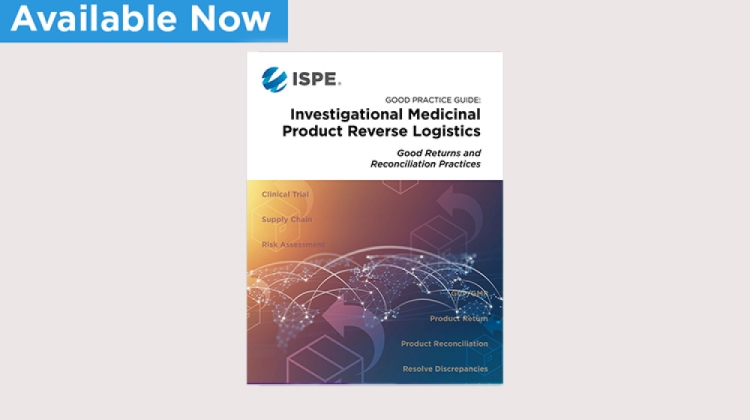Reverse Logistics Planning Can Save Time, Money, and Effort

Does your company only focus on how to get the product to patient without considering what happens if product needs to be retuned?
Does the planning process for your clinical trials consider how product will be destroyed at the end of the trial?
Does your company experience pitfalls in your returns process?
Do you want to know how others create solutions that work?
Planning for Reverse Logistics can help companies and researchers in the pharmaceutical industry improve clinical studies efficiency and effectiveness.
The number of clinical trials has increased year after year as researchers and pharmaceutical manufacturers seek to develop new and improved medicines. There are protocols and best practices in place for nearly every aspect of a clinical trial except one, reverse logistics. What happens when product needs to be returned for accountability, reconciliation, or destruction? Too often, reverse logistics processes have not been planned in advance resulting in inefficient and expensive processes that can have substantial consequences to study costs and accuracy of the data.
Reverse logistics is the process of planning, implementing, and controlling the efficient and effective inbound flow and storage of secondary goods and related information for the purpose of recovering value or proper disposal. Within the Investigational Product’s Supply Chain, it is an essential element more commonly referred to as the Returns Reconciliation, and Destruction Process.
Most current reverse logistics processes lack effective planning, thorough application of risk management, and well-defined roles and responsibilities. This results in inefficient and costly processes that often cause delays in study closure as failure to account for study materials can affect the acceptability of trial data. Establishing better standards is also complicated by gaps in and lack of harmonization between Good Clinical Practice (GCP), Good Manufacturing Practice (GMP), local environmental laws and regulations, and import/export and customs regulations.
The Investigational Products Community of Practice is excited to announce the release of the ISPE Good Practice Guide: Investigational Medicinal Products Reverse Logistics - Good Returns and Reconciliation Practices Guide. The Guide is the first of its kind to provide insights on a number of different considerations that need to be taken into account when planning for and implementing a successful reverse logistics process within your organization. The Guide provides an outline of different considerations to be taken when developing Returns and Reconciliation policies and procedures such as the regulations, product characteristics, or use of technology. This Guide provides a collection of industry expertise from top experts. Each of the authors brings decades of experience of working in Investigational Products and have led efforts to streamline Returns and Reconciliation practices throughout their careers. By helping to outline what steps to be taken for developing a successful Reverse Logistics program, this Guide can further foster standards in these processes for the pharmaceutical industry as a whole.
The Guide promotes the development of a company policy applicable to all clinical trials. This policy should determine which Quality Assurance organization, GCP, or GMP, governs which process. Deciding this can be especially challenging when an audit or inspection finding is noted, or when deviations are evaluated, as practices in each Quality group may be different. A good policy directs which Quality area has jurisdiction, so it is clear which standard operating procedures are to be followed.
Emphasizing planning for issues before the study starts, the Guide offers suggestions for situations such as what to do if importing a drug for destruction is not possible, or if there are changes in site capabilities during the trial. Additionally, scenarios are given in the Guide to help organizations prepare for potential issues. For example, if the investigational medicine is a controlled substance and the patient reports losing a pill down the sink, how will discrepancies like this be treated?
The ISPE Good Practice Guide: Investigational Medicinal Product Reverse Logistics – Good Returns and Reconciliation Practices is the first collection of best practices in the area of Investigational Product Management. It uses the general assumption of working with solid-dosage forms, as they form the majority of experience in the industry; however, alternative dosage forms and their special considerations are addressed. This Guide will help organizations effectively plan and implement reverse logistics policies and processes within their investigational product supply chain organization.
Catherine Hall has over 20 years of Clinical Supply Chain experience and currently holds the position of VP of Data and Quality at endpoint Clinical. She has been an active member of the North America ISPE Investigational Products Community of Practice Steering Committees and is serving her 6th year on the leadership team. Catherine started her career as an academic scientist in the area of Molecular and Cellular Biology before finishing her MBA and transitioning into Supply Chain. Throughout her career she has developed training programs, led process improvement initiatives, and helped build partnerships and solidify alliances. Catherine is probably the most well known for her focus on bridging the GMP/GCP gap to bring supply chain customer service through the last mile to patients.
Neal Gordon holds a PhD in pharmacy from the University of Michigan College of Pharmacy and has over 25 years of experience in the pharmaceutical industry. Neal has developed an expertise which includes scale-up and tech transfer, validation and packaging, and clinical supplies planning project management pertaining to new drug product development. He has also led numerous CMC PAI teams and interfaced with FDA officials both in Washington DC and San Juan, Puerto Rico. Neal’s strengths are in finding solutions to problems, coaching and developing others, being a bridger, cross functional teamwork and collaboration, and seeing and understanding the entire drug product development process. Neal is presently director of Global Clinical Supplies Planning for Merck (formerly Schering Plough) and responsible for planning, organizing, and directing the activities pertaining to Clinical Supply Chain planning process in line with global portfolio strategy.
Edward Groleau has over 30 years of experience in the Pharmaceutical industry. He joined PCI Pharma Services in 2018 and became the director of his group in 2019. Ed leads the Supply Management And Readiness Team (SMART) at PCI where his team partners with clinical trial sponsors to provide any clinical supply management services from protocol development through destruction. Prior to PCI, Ed worked in numerous departments at Eli Lilly. The first 15 years were spent in laboratories conducting physical and chemical characterization activities for drug development. He also spent years developing and validating analytical testing methods at Eli Lilly and before that at Merrell Dow Pharmaceuticals. Ed moved to Lilly’s Clinical Trial Supplies group in 2003 increasing responsibilities as the department adjusted to changes to the industry and regulatory requirements. In 2011 he became part of a highly integrated CM&C team responsible for overseeing the development of compounds from discovery through the proof-of-concept stage. On this team Ed developed procedures and processes required to conduct all aspects of clinical trial supplies from manufacturing through reconciliation. In 2016 Ed moved to Elanco, Lilly’s animal health division, where he established a global clinical trial supplies group for developing companion and food animal projects. Ed has a Bachelor of Science in Chemistry from Illinois State University.
Greg Hottell holds the title of Director, Supply Chain Group Lead in the Clinical Interface team at GSK, where he is responsible for the cost-effective, patient-focused supply of investigational product for GSK’s pharmaceutical development portfolio. Since joining GSK in 2011, Greg implemented an end-to-end planning platform for clinical supplies, helped redesign GSK’s approach to clinical supply blinding and unblinding risk management and was a core team member for the Investigational Material Supply strategic planning initiative, all while consistently delivering top-tier performance with on-time supply of investigational product to patients. Greg has been a Supply Chain professional since 1999, most recently holding positions of increasing responsibility at Eli Lilly & Company and Fisher Clinical Services prior to joining GSK. Greg has a diverse background in the Pharmaceutical Industry that includes clinical trial materials management, demand planning, site inventory management, IRT utilization, drug product supply planning, temperature excursion management, study drug expiry dating extensions, customer service, operations planning & scheduling, and procurement.
.jpg)







